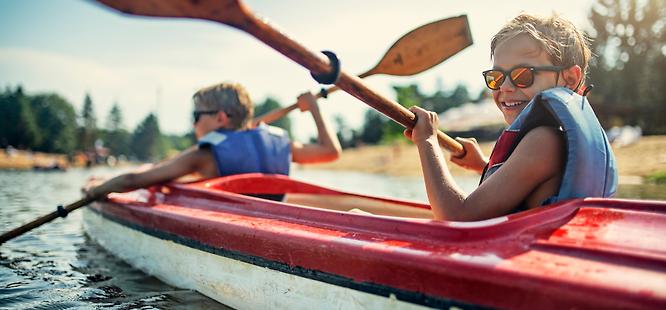
How To Stay Medically Safe While On A Family Vacation
Jul 16, 2019 | Family Medicine | Share:
The last thing you want to think about is potential problems during a family vacation. After all, anything can happen on the road or in the air, from a sprained ankle to a heart attack. During a crisis, who wants to be frantically searching for phone numbers or copies of prescriptions? Carrying a first aid kit is fine, but there are other steps you can take to protect yourself and your family before you hit the road.
Pick a Health Travel Plan
It is often a good idea to buy additional travel health coverage before traveling abroad. HealthCare International, HTH Worldwide, GoSure.com and other companies provide travel emergency insurance. Many travel health plans include air ambulance coverage to medically evacuate or “repatriate” a patient. Many companies offer travel insurance, particularly on cruises and longer family excursions. If you’re truly concerned about travel emergencies, look into various packages available.
Packing the Proper Paperwork
In addition to carrying a list of any medications you may need, it’s important to have a card with your family doctor’s name and contact information, plus a brief summary of your medical history. The doctors looking after you at a facility far from home will have a much easier time diagnosing and treating you if, for instance, they know that you take a blood thinner, that you have a history of asthma, or are diabetic. Many people wear wristbands or dog tags stating they are allergic to penicillin drugs or codeine, or that they have a rare blood type, a stent, or an artificial heart valve. Such information should also appear on your medical history card.
Research Final Destination
Not only should you be aware of health conditions in the countries you’re visiting, but different regions within a country may also present specific health issues. Always carry aspirin, diarrhea medication (such as Imodium), and an antihistamine for mild allergic reactions to environmental pollutants or food. In fact, when searching for places to eat in third world countries, local restaurants where family groups are gathered are always a good bet since parents feel it’s safe enough to bring their children.
Safe Lodgings
To avoid injuries when traveling, ask hotels about baby- and child-proofing rooms before arrival. Be sure windows and doors are locked and cannot easily be unlocked by your children. If there are any objects in the room that may be a threat, put them in a closet or a high dresser.
It’s also a good idea to get you and your family checked out medically before your vacation begins. Because of the aggressive nature of this year’s flu and cold season, you can never be too careful. Visit one of the Medhelp clinics near you for an examination by one of their physicians.